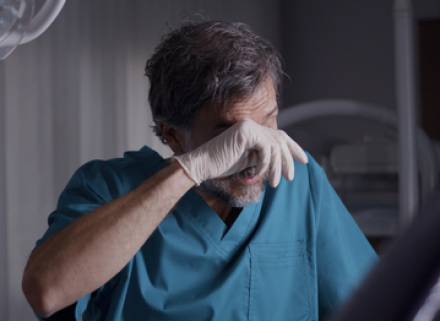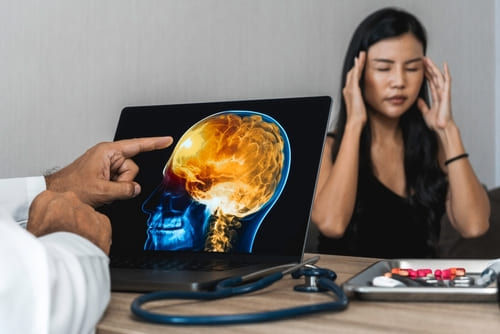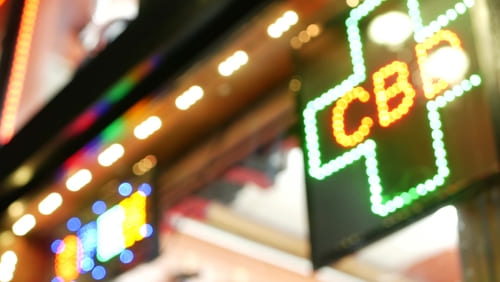Recent Blog Posts
What Is the Role of an Attorney in Defending Against DEA Audits?
 Physicians, hospitals, and pharmacists are sometimes subjected to audits by the Drug Enforcement Administration (DEA). The purpose of an audit is to determine whether there have been any violations of the Controlled Substances Act, which regulates the distribution of drugs. DEA investigators specifically look for any indications of drug diversion, where medication prescribed for a patient is given to someone else.
Physicians, hospitals, and pharmacists are sometimes subjected to audits by the Drug Enforcement Administration (DEA). The purpose of an audit is to determine whether there have been any violations of the Controlled Substances Act, which regulates the distribution of drugs. DEA investigators specifically look for any indications of drug diversion, where medication prescribed for a patient is given to someone else.
A DEA audit can be a harrowing experience and result in serious penalties. These may include license revocation, criminal charges, and/or the revocation of the provider’s DEA registration that allows it to dispense drugs. That is why an Illinois DEA audit defense attorney is essential for responding to audits and maintaining your business.
How Does a DEA Audit Work?
An audit may start with the DEA sending the pharmacy a document called Form 82, which asks for the pharmacy owner’s consent to allow the DEA to conduct an audit. Other times, the DEA may obtain a warrant and audit the pharmacy without notice or the owner’s consent.
The Most Common Threats to a Physical Therapy License
 It takes a lot of work to earn a physical therapy license, but it also takes work to maintain it. Aside from meeting requirements like continuing education, physical therapists sometimes must defend their licenses from allegations of misconduct, billing errors, and other issues that can place their practice in jeopardy.
It takes a lot of work to earn a physical therapy license, but it also takes work to maintain it. Aside from meeting requirements like continuing education, physical therapists sometimes must defend their licenses from allegations of misconduct, billing errors, and other issues that can place their practice in jeopardy.
Professionals who fail to adequately fend off charges of wrongdoing can face disciplinary action from the Illinois Department of Financial & Professional Regulation’s (IDFPR) Physical Licensing and Disciplinary Board. Such actions may include license suspension or revocation.
This article will explore some of the most common reasons physical therapists receive disciplinary actions, as well as how to contact an Illinois physical therapy license defense attorney.
What Are Some Common Risks to a Physical Therapy License?
Physical therapists face risks to their license that can be administrative or related to patient interaction. For example:
What Are My Rights During a PBM Pharmacy Audit?
 Pharmacy benefit managers (PBMs) are companies that act as middlemen between pharmacies and health plans or insurers. Originally created in the 1960s to process insurance claims, PBMs have grown in power and serve several functions, one of which is setting the prices for prescriptive medications. PBMs do this by negotiating drug prices with insurance companies. When a pharmacy fulfills a prescription, it sends the claim to the PBM, which charges the insurer the negotiated price. The PBM then reimburses the pharmacy for the medication while pocketing some of the cost.
Pharmacy benefit managers (PBMs) are companies that act as middlemen between pharmacies and health plans or insurers. Originally created in the 1960s to process insurance claims, PBMs have grown in power and serve several functions, one of which is setting the prices for prescriptive medications. PBMs do this by negotiating drug prices with insurance companies. When a pharmacy fulfills a prescription, it sends the claim to the PBM, which charges the insurer the negotiated price. The PBM then reimburses the pharmacy for the medication while pocketing some of the cost.
Although PBMs have become controversial, they remain a reality in the pharmaceutical industry.
PMBs occasionally conduct audits of pharmacies. A pharmacy may be randomly selected, or a complaint or discrepancy may trigger the audit. Either way, it can be a difficult and costly ordeal. Because PBMs wield a lot of power, it is important to know your legal rights if you are audited. This article will discuss what a PBM audit is, your legal rights, and how to contact an Illinois PBM audit attorney who will protect you.
5 Reasons Your Real Estate License May Be in Jeopardy
 Any real estate professional who wants to conduct business in Illinois must maintain a valid professional license issued by the Illinois Department of Financial and Professional Regulation (IDFPR). For some professionals, maintaining this license can be challenging. There are several reasons why a real estate license can be suspended or revoked by the IDFPR’s Real Estate Administration and Disciplinary Board. Some of these violations may be intuitive, but they nevertheless cost a number of professionals their licenses each year.
Any real estate professional who wants to conduct business in Illinois must maintain a valid professional license issued by the Illinois Department of Financial and Professional Regulation (IDFPR). For some professionals, maintaining this license can be challenging. There are several reasons why a real estate license can be suspended or revoked by the IDFPR’s Real Estate Administration and Disciplinary Board. Some of these violations may be intuitive, but they nevertheless cost a number of professionals their licenses each year.
This article will discuss five ways a real estate professional can lose his or her license. As we explore these violations below, remember that the key to successfully defending your license is hiring an Illinois real estate license defense attorney.
Failing to Meet Continuing Education Requirements
Real estate professionals must meet continuing education requirements to maintain their licenses. A real estate broker licensed before November 1, 2021, for instance, must complete 12 hours of continuing education. Brokers licensed after that date must complete 45 hours of courses. Failing to meet these conditions can lead to a suspension or revocation of a real estate broker’s license.
Can My Social Media Activity Affect My Psychology License?
 Social media is used so often that many see it as routine. According to some estimates, the average user spends two hours and 31 minutes on social media a day. It is a public space where billions of people around the world go to share their personal and professional lives, thoughts, ideas, and more.
Social media is used so often that many see it as routine. According to some estimates, the average user spends two hours and 31 minutes on social media a day. It is a public space where billions of people around the world go to share their personal and professional lives, thoughts, ideas, and more.
That is why social media can be a double-edged sword for clinical psychologists. The more you immerse yourself in online life, the harder it can be to remain vigilant about your activity. It can be difficult to remember that even when posting content to your personal pages you still have professional duties to your patients that can make some of that content problematic.
This article will discuss how social media activity can affect a licensed clinical psychologist (LCP). If you think your license may be in jeopardy, contact an Illinois clinical psychologist license defense attorney to begin building your defense.
When Can a Dentist Be Investigated by the DEA?
 For dentists, the ability to prescribe controlled substances is essential for managing patients' pain. However, improper prescribing practices or other concerns about drug diversion can lead to serious consequences. Investigations may be performed by the Drug Enforcement Administration (DEA), and a dentist could face the loss of their controlled substance registration. Understanding the reasons why the DEA may perform an investigation is vital for dentists who need to avoid issues that could affect their practices. In these situations, an experienced attorney can provide legal help and representation to ensure that a dentist can protect their practice.
For dentists, the ability to prescribe controlled substances is essential for managing patients' pain. However, improper prescribing practices or other concerns about drug diversion can lead to serious consequences. Investigations may be performed by the Drug Enforcement Administration (DEA), and a dentist could face the loss of their controlled substance registration. Understanding the reasons why the DEA may perform an investigation is vital for dentists who need to avoid issues that could affect their practices. In these situations, an experienced attorney can provide legal help and representation to ensure that a dentist can protect their practice.
Common Issues That May Lead to a DEA Investigation
Dentists can be investigated by the DEA for several reasons that may be related to the improper prescribing or dispensing of controlled substances. Some common issues that may trigger an investigation include:
How Should I Respond to a DEA Order to Show Cause?
 Medical providers and pharmacists who handle controlled substances must comply with strict regulations to maintain registration with the Drug Enforcement Administration (DEA). If the DEA suspects that someone has committed violations such as unlawful prescribing or unlawful dispensing of controlled substances, it may perform an investigation. If the DEA believes that a person has violated the law or engaged in drug diversion, it may take action to suspend or revoke a controlled substance registration and issue an Order to Show Cause.
Medical providers and pharmacists who handle controlled substances must comply with strict regulations to maintain registration with the Drug Enforcement Administration (DEA). If the DEA suspects that someone has committed violations such as unlawful prescribing or unlawful dispensing of controlled substances, it may perform an investigation. If the DEA believes that a person has violated the law or engaged in drug diversion, it may take action to suspend or revoke a controlled substance registration and issue an Order to Show Cause.
Understanding how to respond to such an order is crucial, since the loss of a DEA registration may affect a person’s ability to practice. An experienced attorney can provide representation in these situations, helping medical professionals take steps to defend against the loss of a controlled substance registration.
How Should I Respond to a Medicare Conditional Payment Letter?
 Medicare benefits are crucial for many people, ensuring that they receive proper medical treatment. However, some people face situations where Medicare pays for certain treatments and then seeks repayment. A Conditional Payment Letter may be issued when Medicare has made payments for medical services that are later covered by a settlement or insurance claim. People who receive these letters may be concerned that Medicare repayment demands may affect their ability to use the settlements they have received to address their ongoing needs. In these situations, an experienced attorney can help respond to Conditional Payment Letters and work to resolve these issues successfully.
Medicare benefits are crucial for many people, ensuring that they receive proper medical treatment. However, some people face situations where Medicare pays for certain treatments and then seeks repayment. A Conditional Payment Letter may be issued when Medicare has made payments for medical services that are later covered by a settlement or insurance claim. People who receive these letters may be concerned that Medicare repayment demands may affect their ability to use the settlements they have received to address their ongoing needs. In these situations, an experienced attorney can help respond to Conditional Payment Letters and work to resolve these issues successfully.
When Will Medicare Issue Conditional Payment Letters?
In some situations, Medicare makes payments for medical services that should have been covered by another entity, such as an insurance company or a liable third party. These payments are termed "conditional," because Medicare expects to be reimbursed once the responsible party has been identified and compensation is received.
When Can Home Inspectors or Appraisers Face Disciplinary Action?
 During real estate transactions, accurate information and assessments of a property are crucial. Appraisers gather information used to estimate the value of a property, and home inspectors uncover potential concerns that buyers and sellers may need to address before a transaction can be completed. These professionals are subject to strict regulations, and failure to comply with legal and ethical requirements can lead to disciplinary action by the Illinois Real Estate Board. Understanding the reasons why appraisers and inspectors may be investigated and the potential disciplinary measures they may face is crucial to ensure that these professionals can avoid license discipline. If you are a home inspector or appraiser, our experienced real estate license defense attorney can help you defend your license and navigate the legal complexities involved in investigations and disciplinary hearings.
During real estate transactions, accurate information and assessments of a property are crucial. Appraisers gather information used to estimate the value of a property, and home inspectors uncover potential concerns that buyers and sellers may need to address before a transaction can be completed. These professionals are subject to strict regulations, and failure to comply with legal and ethical requirements can lead to disciplinary action by the Illinois Real Estate Board. Understanding the reasons why appraisers and inspectors may be investigated and the potential disciplinary measures they may face is crucial to ensure that these professionals can avoid license discipline. If you are a home inspector or appraiser, our experienced real estate license defense attorney can help you defend your license and navigate the legal complexities involved in investigations and disciplinary hearings.
When Can Medical Marijuana Dispensaries Face License Discipline?
 Since the state of Illinois legalized marijuana for medical and recreational use, many business owners have taken advantage of the available opportunities and opened dispensaries and other types of marijuana-related businesses. While these businesses can be lucrative opportunities, they face a number of restrictions and requirements.
Since the state of Illinois legalized marijuana for medical and recreational use, many business owners have taken advantage of the available opportunities and opened dispensaries and other types of marijuana-related businesses. While these businesses can be lucrative opportunities, they face a number of restrictions and requirements.
Understanding the issues that could lead to discipline to a medical marijuana business license can be crucial. For those who face disciplinary action, an experienced attorney can provide legal help and representation, working to resolve these issues and ensure that a business can continue operating.
Grounds for Disciplinary Action for Marijuana Businesses
The Cannabis Regulation and Tax Act details the requirements that apply to dispensaries that provide medical marijuana to approved patients and recreational cannabis products to adults. It also lists the grounds for discipline that may result in the denial of a license, a refusal to renew an existing license, a reprimand, the suspension or revocation of a license, or other forms of disciplinary action. These grounds include:









